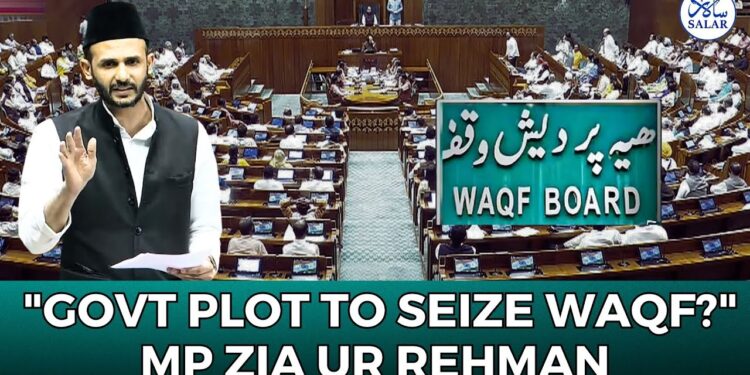In a significant political and legal development, Samajwadi Party Member of Parliament Zia Ur Rehman has moved the Supreme Court challenging the constitutionality of the Waqf Amendment Act, 2025. Terming the legislation “manifestly arbitrary,” the MP has sought its immediate suspension and a comprehensive judicial review.
The petition, filed earlier this week, argues that the amendments introduced by the 2025 Act infringe upon fundamental rights guaranteed under the Constitution, particularly Articles 14 (equality before law), 25 (freedom of religion), and 26 (freedom to manage religious affairs).
According to Rehman, the amended provisions disproportionately empower the state to interfere in the management of Waqf properties and dilute the autonomy of Waqf boards. “The changes erode the very spirit of community-led religious and charitable administration,” the plea states.
The Waqf Amendment Act, 2025, passed by Parliament earlier this year, has been at the center of controversy. It introduces stricter regulatory oversight of Waqf properties, allows for state acquisition under broader grounds, and alters the process of appointing members to Waqf Boards, allegedly giving the central government a more dominant role.
Opposition parties and civil rights groups have criticized the Act, claiming it targets Muslim religious institutions and undermines minority rights. “This Act is not only unconstitutional but is also an attack on the pluralistic fabric of our nation,” said Rehman while addressing the media on Tuesday.
Legal experts have also raised red flags over the amended legislation. Former Supreme Court judge Justice A.M. Khanwilkar (Retd.) recently remarked at a public forum that “any law that allows disproportionate executive control over religious trusts must be scrutinized with a constitutional lens.”
The Supreme Court is expected to hear the matter in the coming weeks. If admitted, the case could have far-reaching implications not only for Waqf governance but also for the broader legal framework governing religious endowments in India.
The Union Ministry of Minority Affairs, Rehman which piloted the amendment, has defended the legislation, claiming it aims to bring transparency and accountability to the management of Waqf properties, which are often marred by allegations of mismanagement and corruption.
As political temperatures rise and the legal battle unfolds, the Waqf Amendment Act, 2025 is set to become a flashpoint in the ongoing debate over the balance between religious freedom and state regulation in India.















 Categories
Categories









